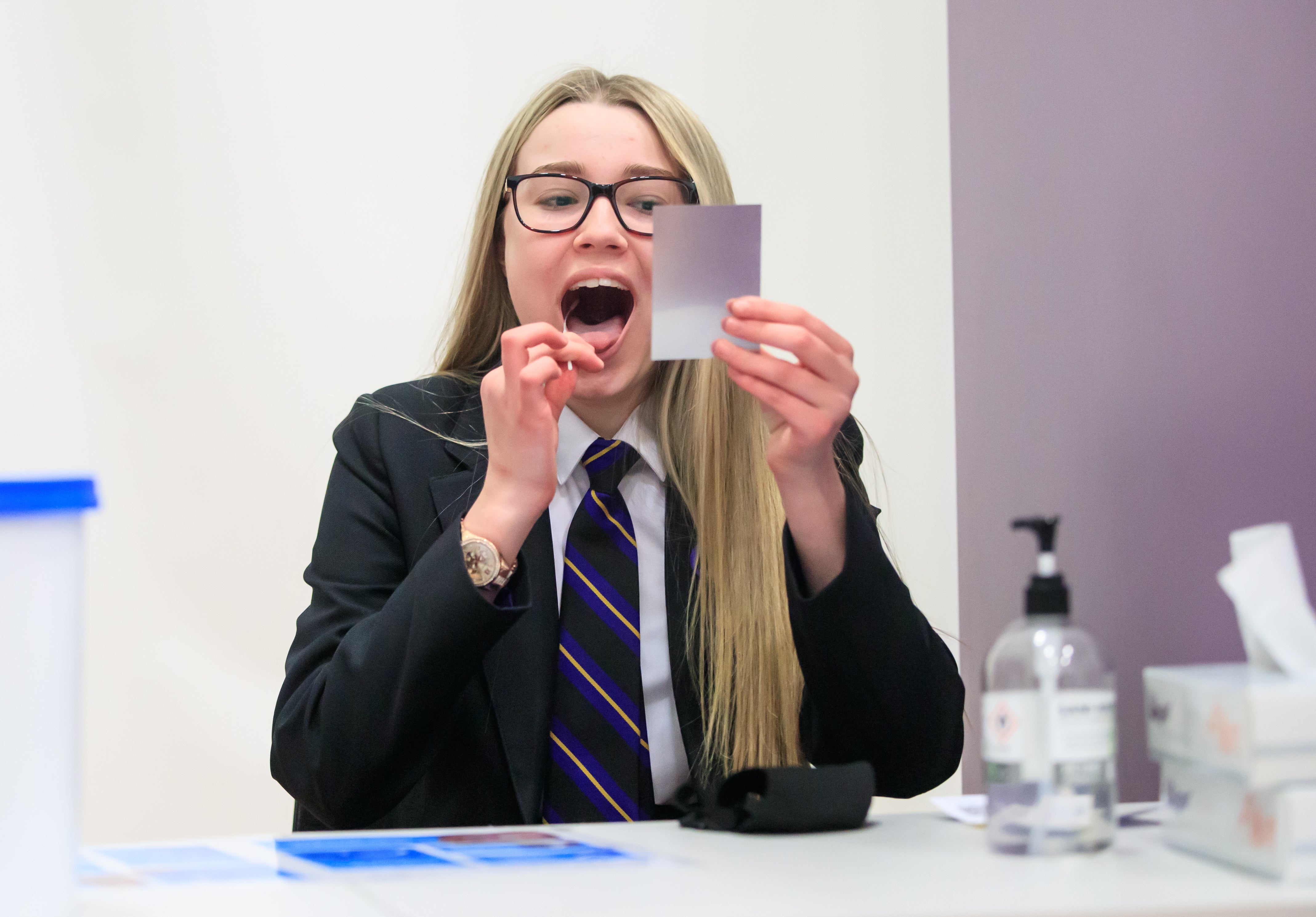The Independent's journalism is supported by our readers. When you purchase through links on our site, we may earn commission.
What do I do if my child gets Covid when back at school?
Experts warn of increase in coronavirus cases as students return to the classroom

Across the UK, children are preparing to return to school after almost two months of summer holidays. But experts have warned that the number of coronavirus cases may surge in the coming weeks, as more children and adults mix inside the classroom.
Professor Jason Leitch, Scotland’s national clinical director, told Sky News on Tuesday that the UK could be facing a “fragile moment” in its response to the ongoing pandemic, as the Delta variant continues to spread and lockdown rules remain relaxed.
It comes after Scotland has seen Covid-19 cases doubling every week since restrictions were eased on 9 August. Schools in Scotland have been in session since at least mid-August, which contributed to the increase in cases, said Leitch.
As most pupils in England, Wales and Northern Ireland return to the classroom on Monday 6 September, parents may be concerned about what they should do if their child contracts Covid-19 while at school. The rules differ according to where in the country you live.
Here’s everything you need to know:
England
In England, schools no longer have to keep pupils in year group “bubbles” to reduce mixing, face coverings are no longer required and isolation rules have been relaxed.
However, all secondary school pupils are invited to take regular lateral flow swab tests at school, every three to five days.
If your child tests positive for Covid-19, they will be required to isolate at home for 10 days, as they did before the summer holidays. According to government guidance, you will have to book a further PCR test for them to confirm the result, and your child should continue to self-isolate while awaiting the results.
Pupils, or their parents, will be asked to provide details about close contacts at school or elsewhere, and other children who have been named as close contacts will then be asked to take a polymerase chain reaction (PCR) swab test.
Close contacts will not have to self-isolate unless they test positive for the virus. This includes parents and others living in the same household as the child who tested positive for Covid-19.
If your child’s PCR test comes back negative, your child can return to school as long as they don’t have Covid-19 symptoms.
Scotland
Pupils in Scotland are encouraged to take twice-weekly lateral flow tests at home. If a student starts to feel unwell with Covid-19 symptoms while at school, parents are advised that they will be looked after by staff until they can be collected.
Other siblings in the school or in other schools should also return home as soon as possible and self-isolate with their household. According to NHS Scotland’s Inform website, all members of the household should remain at home until the person with symptoms gets tested.
All household members should not go to work, school, public areas or use public transport while isolating for any reason, including to buy food or other essentials.
Wales
The Welsh government has advised parents to ensure their child takes twice-weekly lateral flow tests throughout the rest of the academic year, regardless of whether they have symptoms or not.
The results of the regular lateral flow tests will have to be reported online.
Children displaying symptoms of Covid-19 should remain at home and parents are advised to arrange a test. If the test comes back positive, the Test, Trace and Protect (TTP) system will commence to advise self-isolation and identify close contacts.
All adults who have been fully-vaccinated, or those under 18, are no longer required to self-isolate if they are identified as a close contact of someone who has tested positive for coronavirus.
Children who have been identified as a close contact, but do not have Covid symptoms and have not been advised to self-isolate can continue to attend school. They will, however, be advised to take a PCR test and will have to self-isolate if the test comes back positive.
Northern Ireland
Most schools in Northern Ireland already returned last week, but all remaining schools reopen today.
All students in Years Eight to 14 and school staff are encouraged to take part in voluntary testing, which is offered twice weekly and can be carried out at home.
Once the test is completed, pupils who receive a positive test result must immediately report it to the school’s appointed Covid Officer via a phone call.
Parents are advised to then seek a further PCR test from a local testing centre for their child. If the PCR test returns a positive result, the pupil and their whole household will be required to self-isolate for ten days.
Subscribe to Independent Premium to bookmark this article
Want to bookmark your favourite articles and stories to read or reference later? Start your Independent Premium subscription today.

Join our commenting forum
Join thought-provoking conversations, follow other Independent readers and see their replies